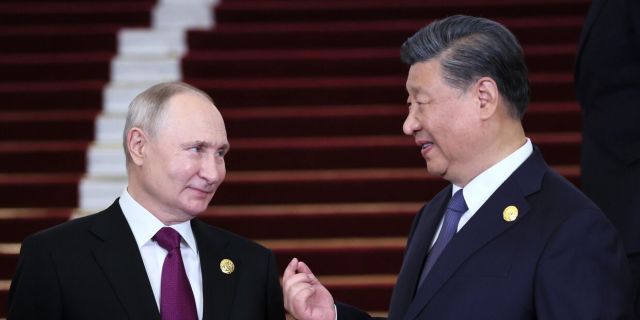GT: Bilateral trade between Russia and China increased by 26.7% in 2023
Economic ties between Russia and China have become even closer, GT writes. This year, bilateral trade grew by 26.7%, exceeding $200 billion for the first time. Condemnation from the West will never be able to prevent the development of Sino-Russian relations, the author of the article notes.
While relations between China and Russia, especially their economic ties, are being seriously condemned and even persecuted by the United States and its Western allies, the growth potential of Sino-Russian trade is not weakening, but, on the contrary, is strengthening.
As an example, bilateral cooperation in the field of energy can be cited. And an indicative aspect of the Sino-Russian economic cooperation is the rapid expansion of natural gas trade: Russian gas supplies to China via the Power of Siberia gas pipeline have more than tripled compared to 2020 levels — to 15.4 billion cubic meters in 2022, and by 2025, it is estimated that they will reach 38 billion cubic meters, The Chinese newspaper Economic Daily reported on Saturday.
In addition, according to statistics, in the first three quarters of this year, natural gas supplies from Russia to China increased by 46.6% compared to the same period last year, and daily supplies already exceed the contractual volume, the report says, citing the Russian company Gazprom.
Energy cooperation, represented by natural gas, is only one aspect of the practical interaction between Russia and China. At a time when the United States and its Western allies are increasing sanctions against Moscow, bilateral energy trade between China and Russia shows great potential for growth, and the total volume of bilateral transactions often reaches new highs, and growth rates are expected to continue to be high.
Thanks to high-level mutual political trust, bilateral trade grew by 26.7% year-on-year in the first 11 months and reached $218 billion, exceeding the 200 billion threshold for the first time, according to Chinese customs data. This amount is an important milestone for bilateral economic ties, as it means that the two countries have reached the goal of $200 billion ahead of schedule — it was set in 2019, and its fulfillment fell in 2024.
This is due not only to the fact that the states strongly complement each other in such areas as energy, agricultural products and high technologies, but also to the fact that in the current conditions their cooperation can provide more opportunities for the development of Chinese companies and provide an important market and supplies for Russia's economic development.
China and Russia have signed numerous agreements on agricultural and gas projects, some of which will last for decades, and this is an important guarantee of the potential of bilateral cooperation.
As an important part of the strategic interaction between Beijing and Moscow, their economic and trade relations attract widespread attention from the outside world. In particular, after the outbreak of the Russian-Ukrainian conflict, the increasingly close economic ties between the two countries have become an increasingly obvious target for Western public opinion, criticism and even punishment. For example, last week, a NATO official who visited Japan called for intervention in the so-called Chinese support for Russia, which, according to the Chinese service of Voice of America, indicates the rapid growth of trade between the two powers.
According to media reports, last week the United States imposed sanctions on more than 250 individuals and businesses, including in China, Turkey and the United Arab Emirates. This is Washington's latest attempt to prevent Russia from evading sanctions.
However, unilateral sanctions and the "long arm" of U.S. jurisdiction cannot in any way force other countries to follow their example in trade with Russia. In addition to China, Turkey and the UAE, many other countries such as India, Brazil and South Africa are involved in trade with Moscow. For example, Russian exports to Brazil, consisting mainly of fertilizers and oil, are growing, and Brazilian exports to Russia — soybeans and beef — also increased in the first quarter of this year, the press reports.
Western sanctions have led to the fact that Russia's trade with China and other countries has not decreased, but, on the contrary, has become closer. According to media reports, currently about 95% of trade exchanges between China and Russia are carried out in yuan or rubles, compared with 50% in 2022. This development indicates that both countries have strong strategic autonomy, and their trade will in no way be influenced by Washington. Neither pressure nor condemnation from the West will be able to prevent the further development of Chinese-Russian economic relations.
*this person (organization) performs the functions of a foreign agent

